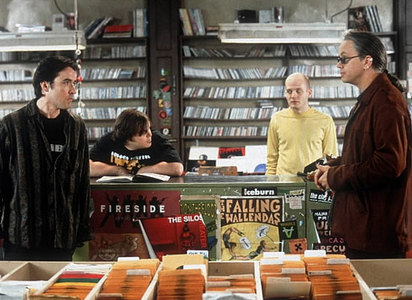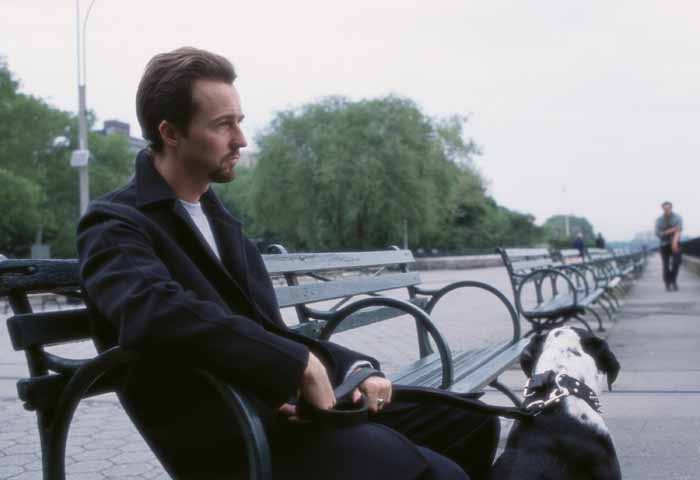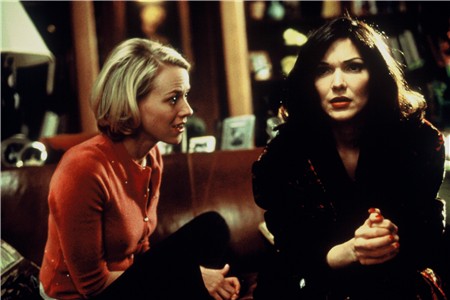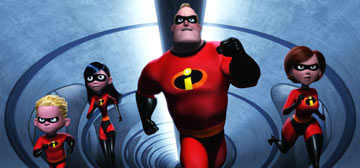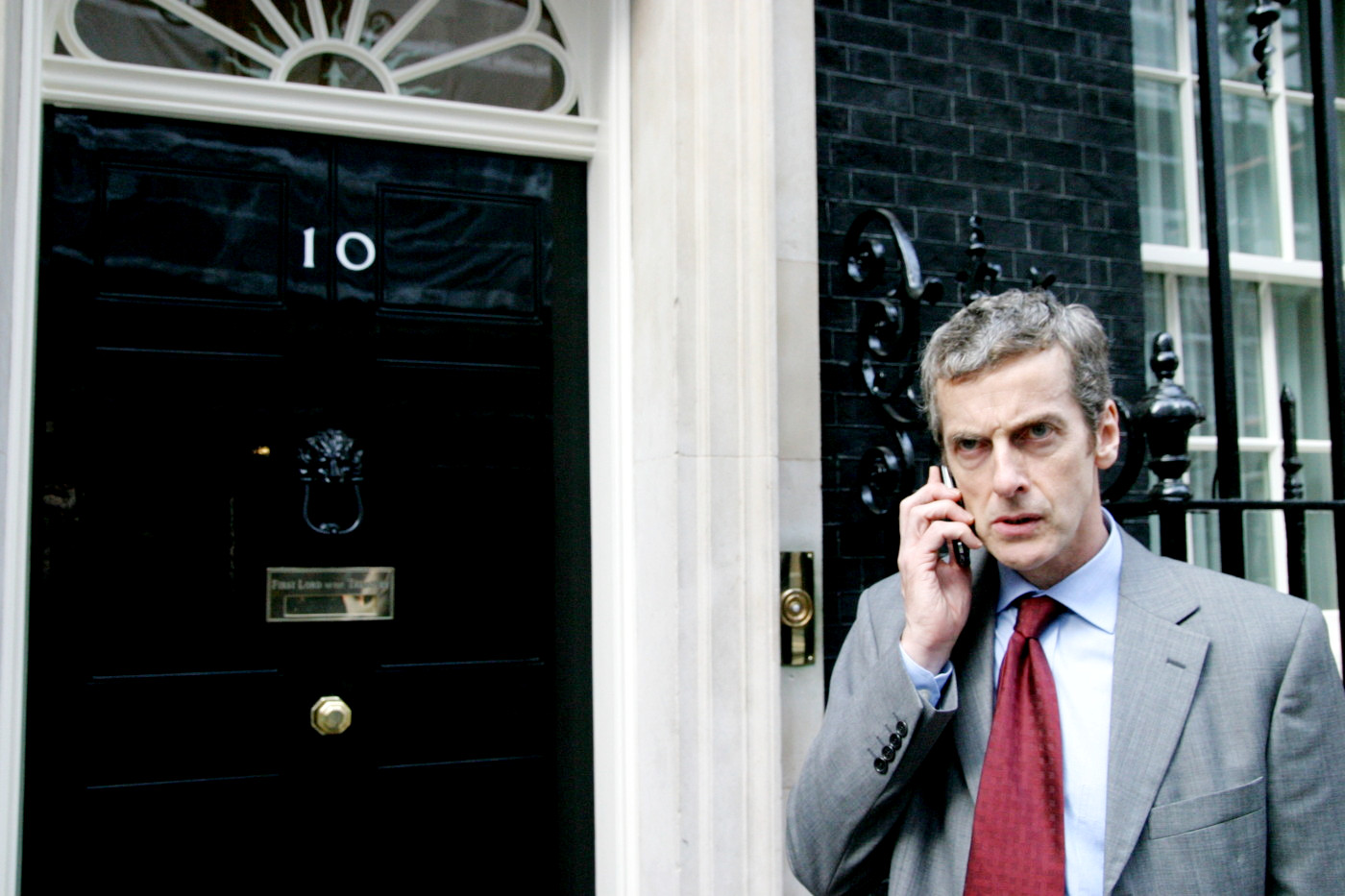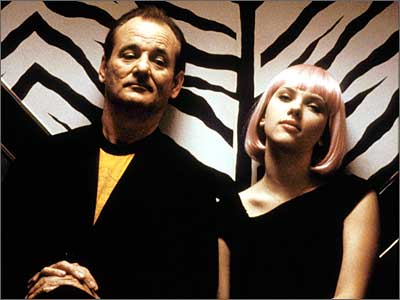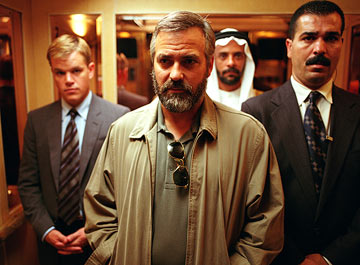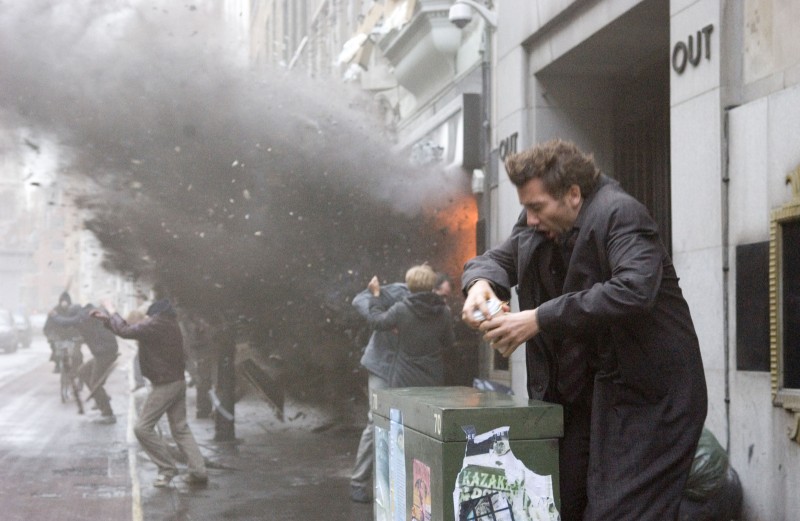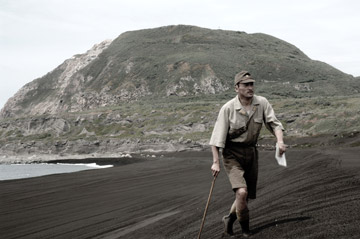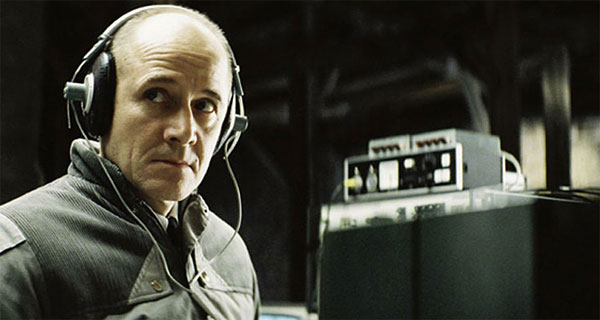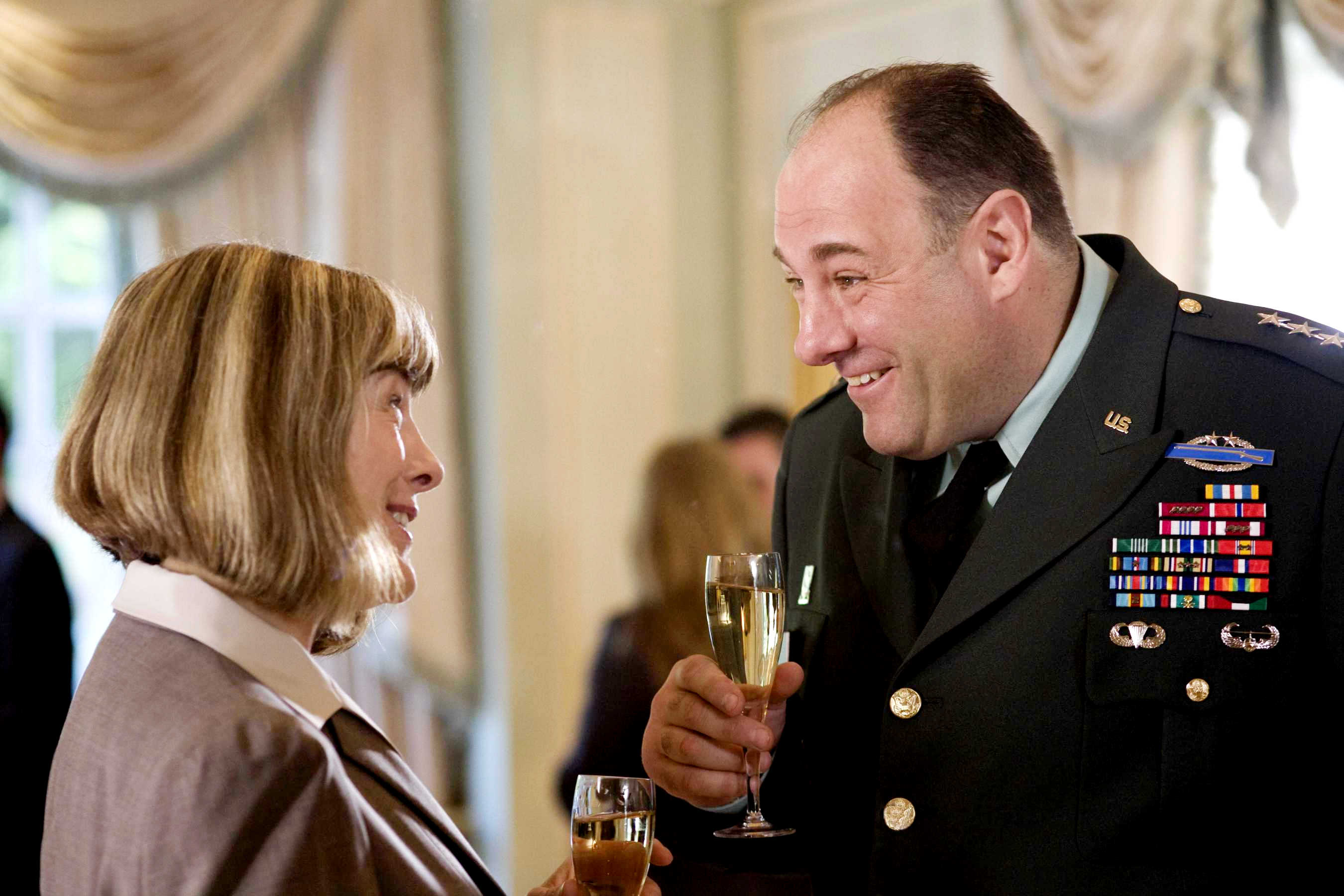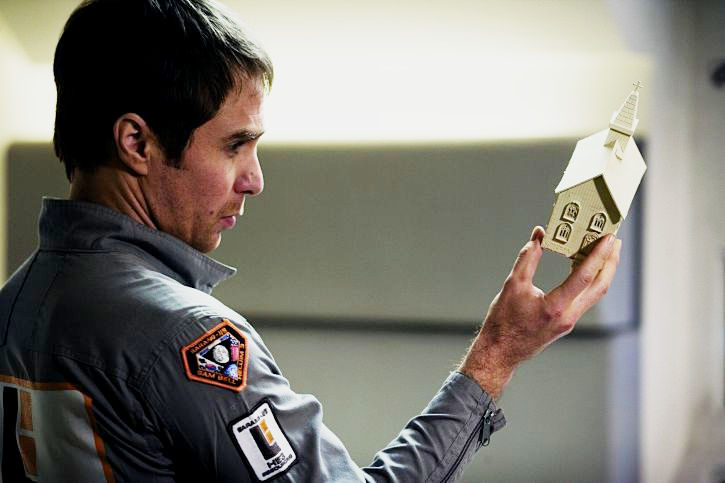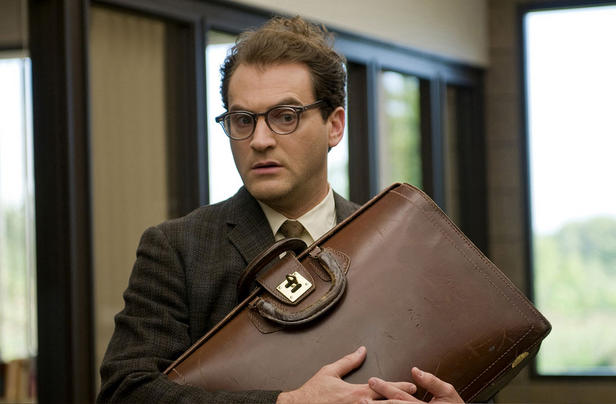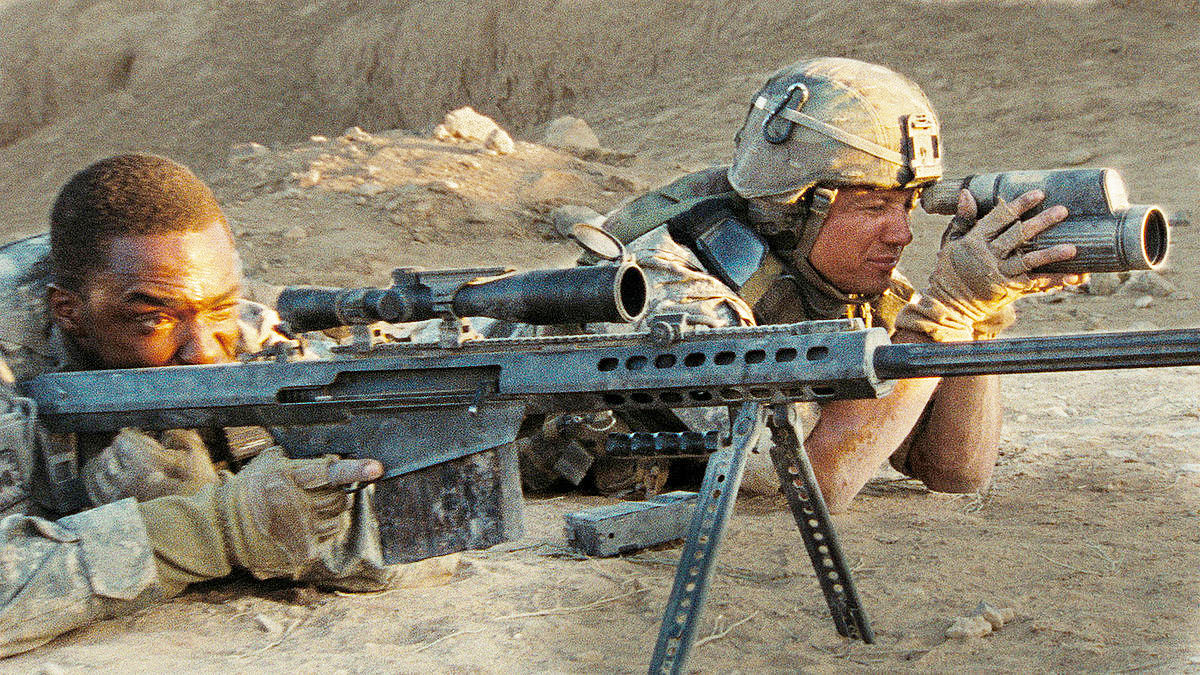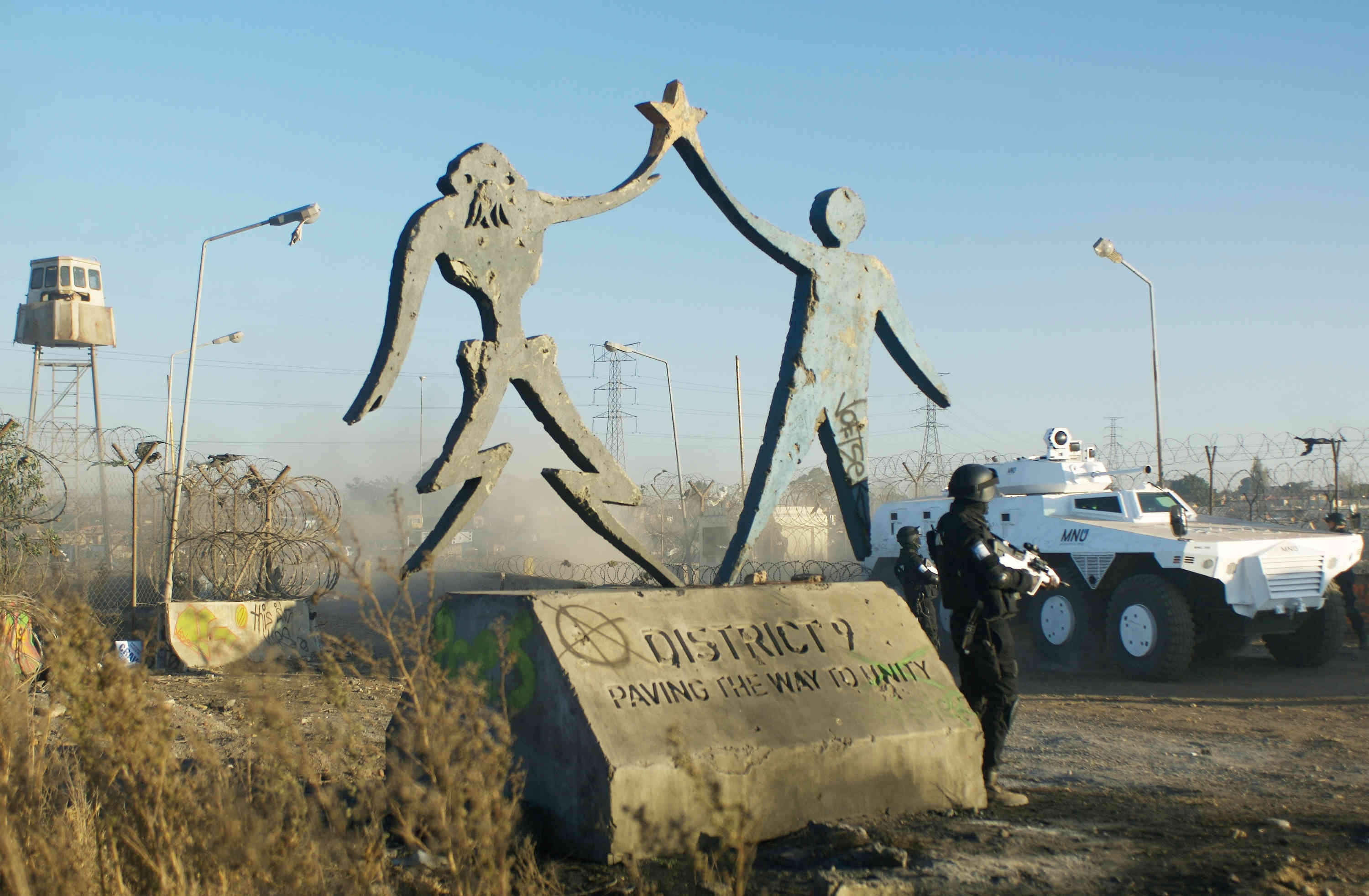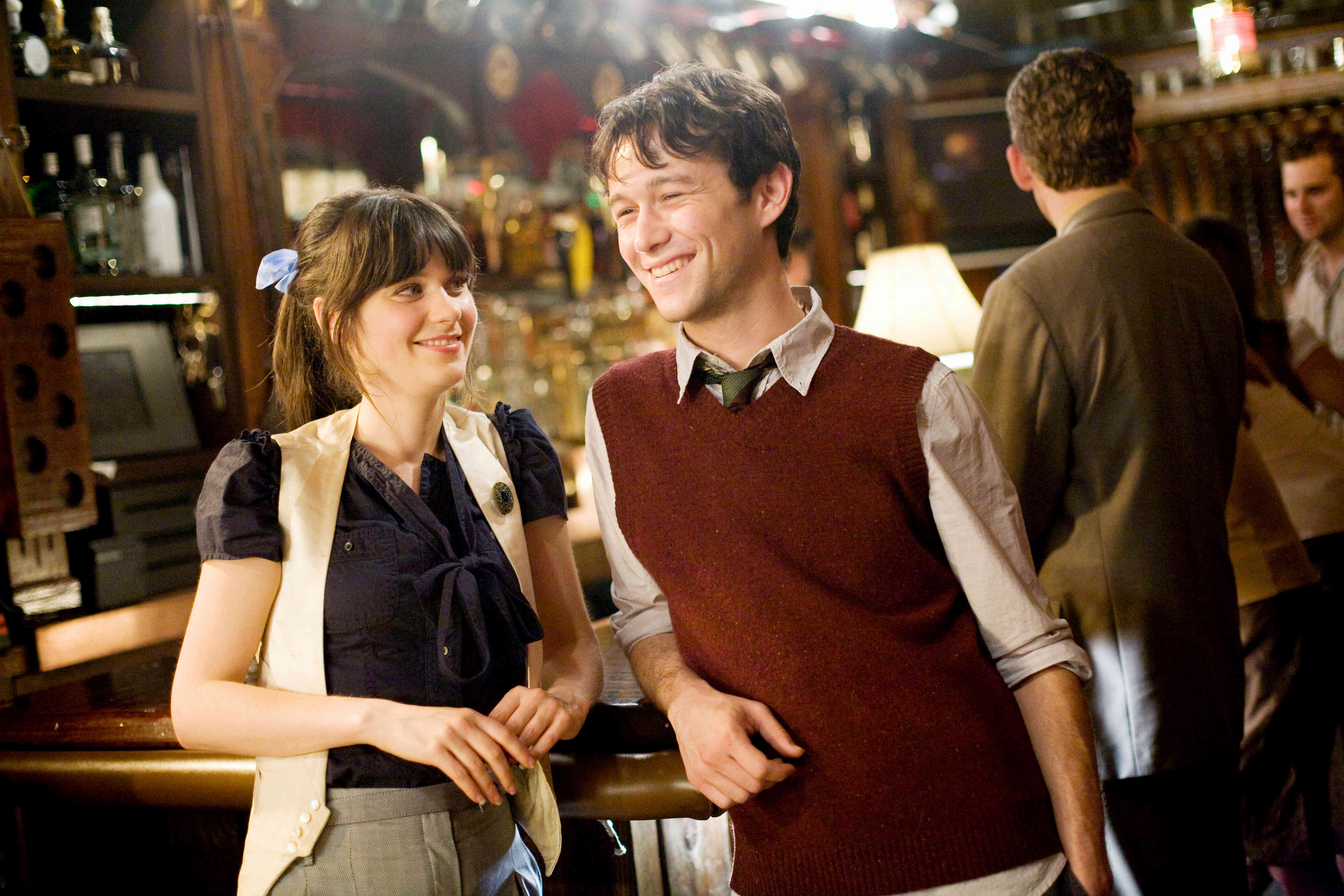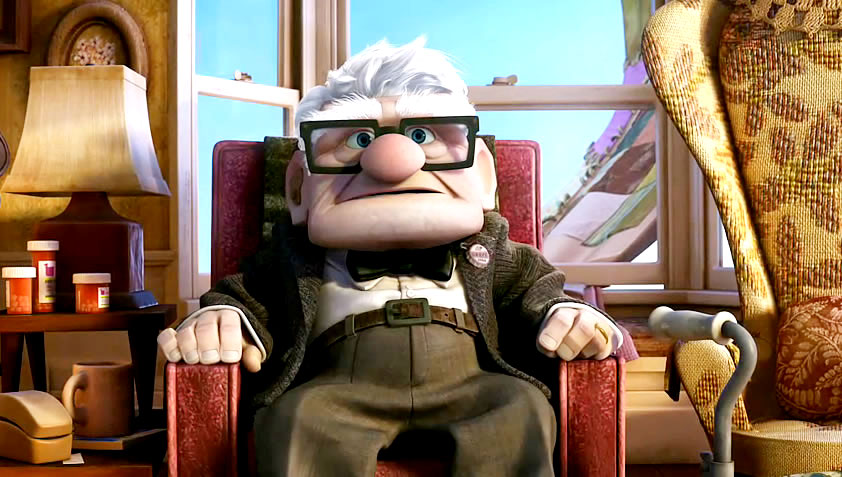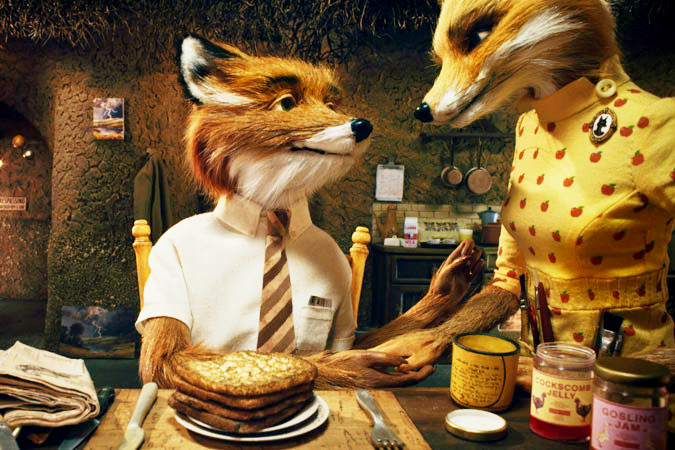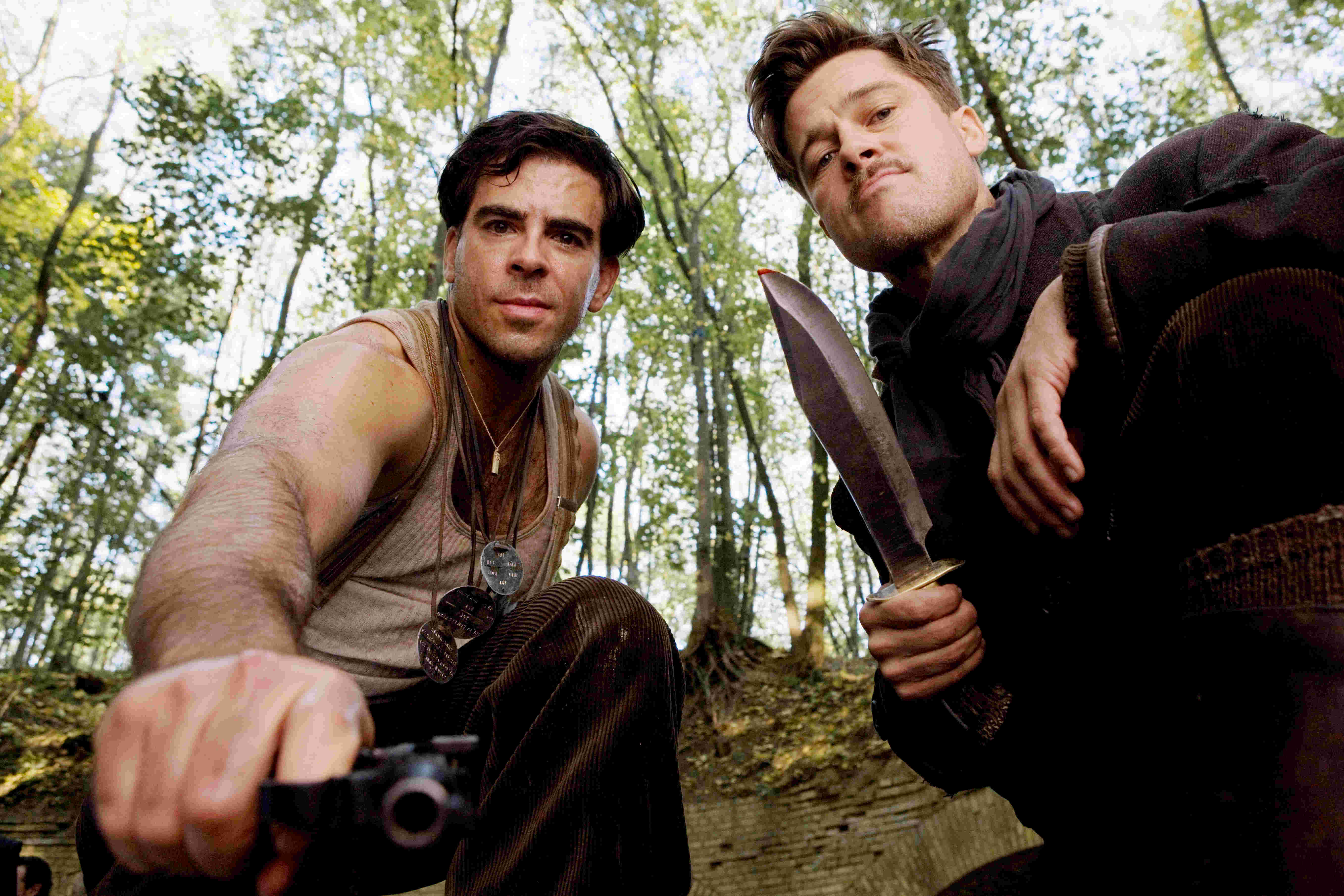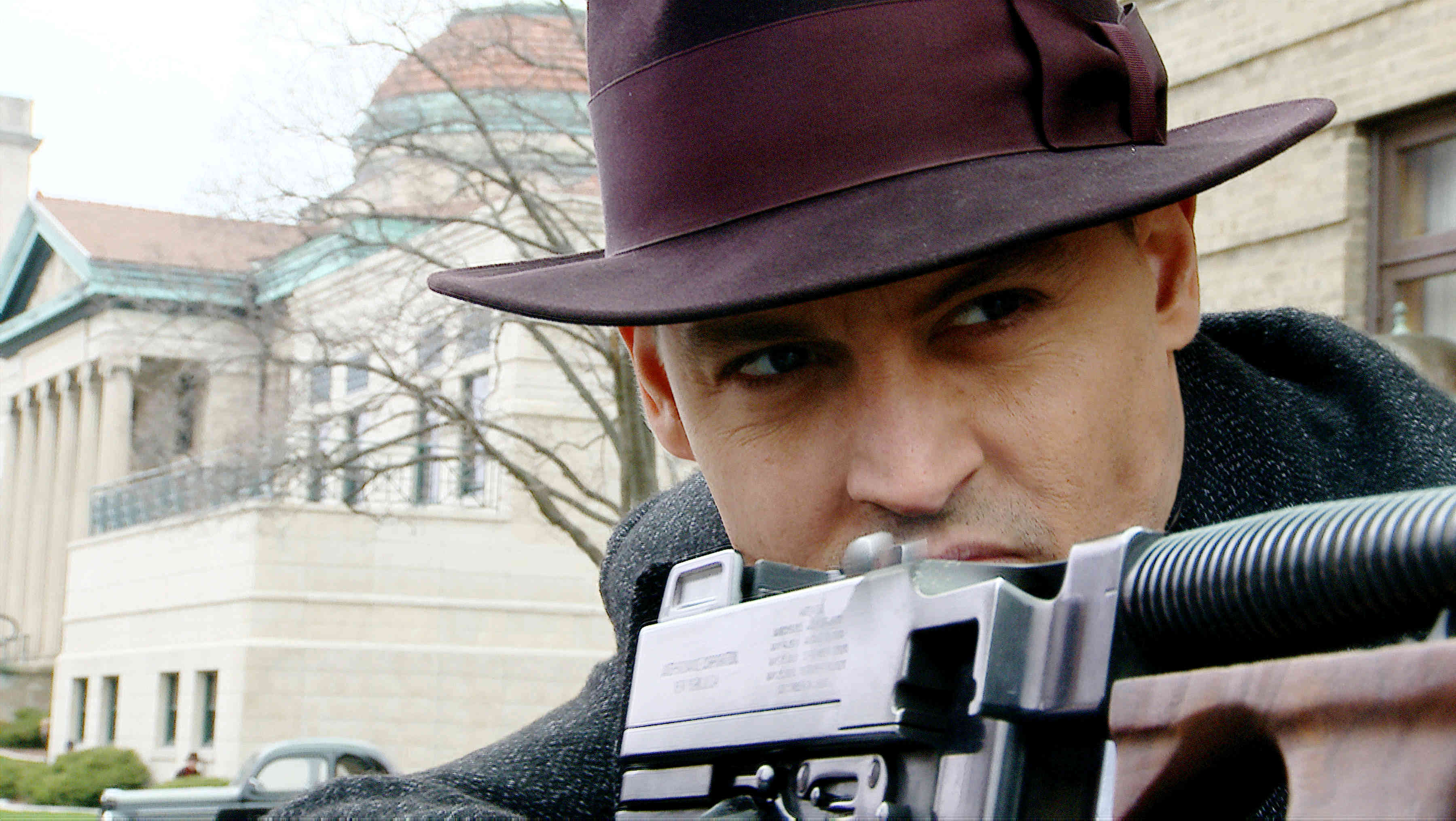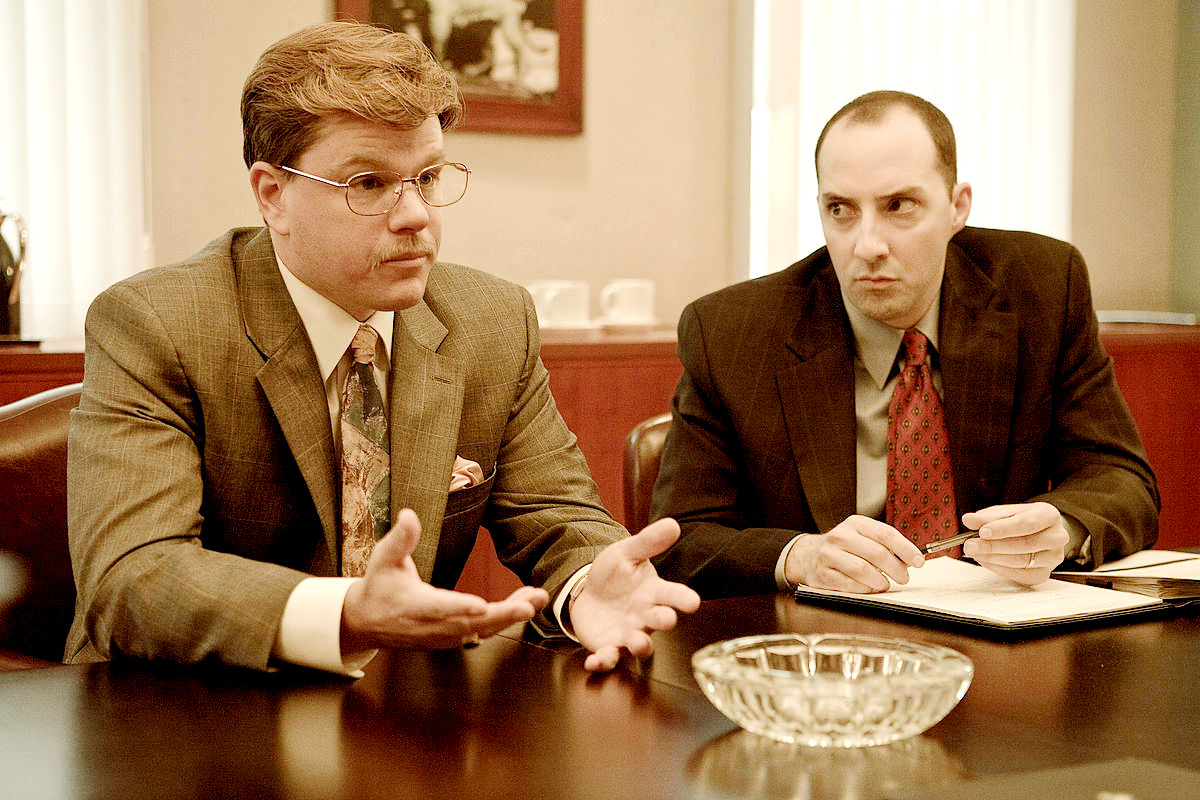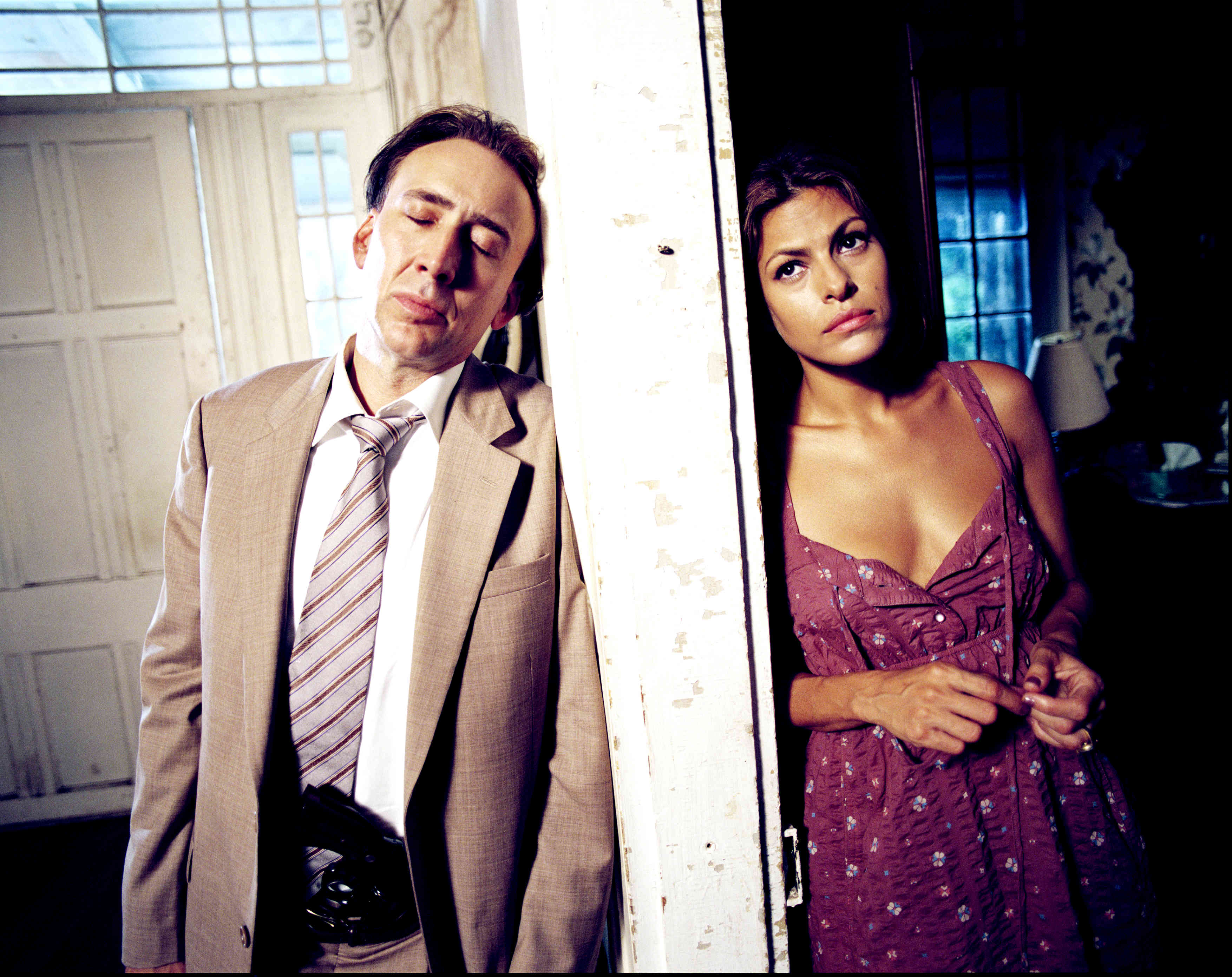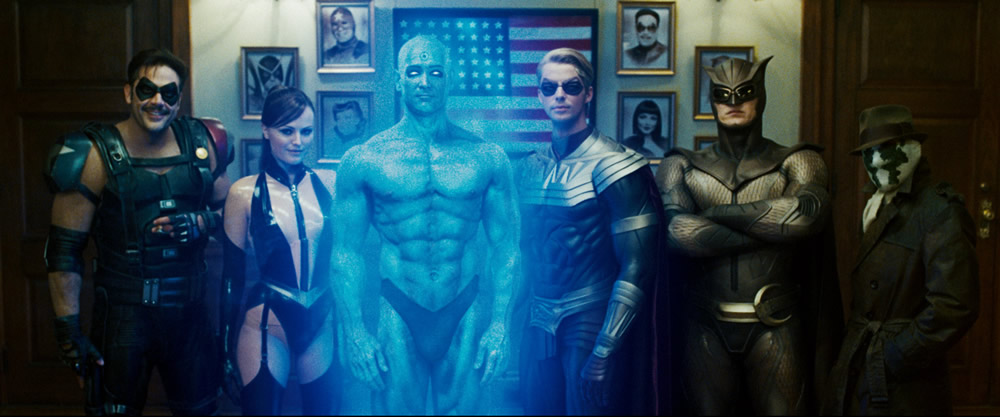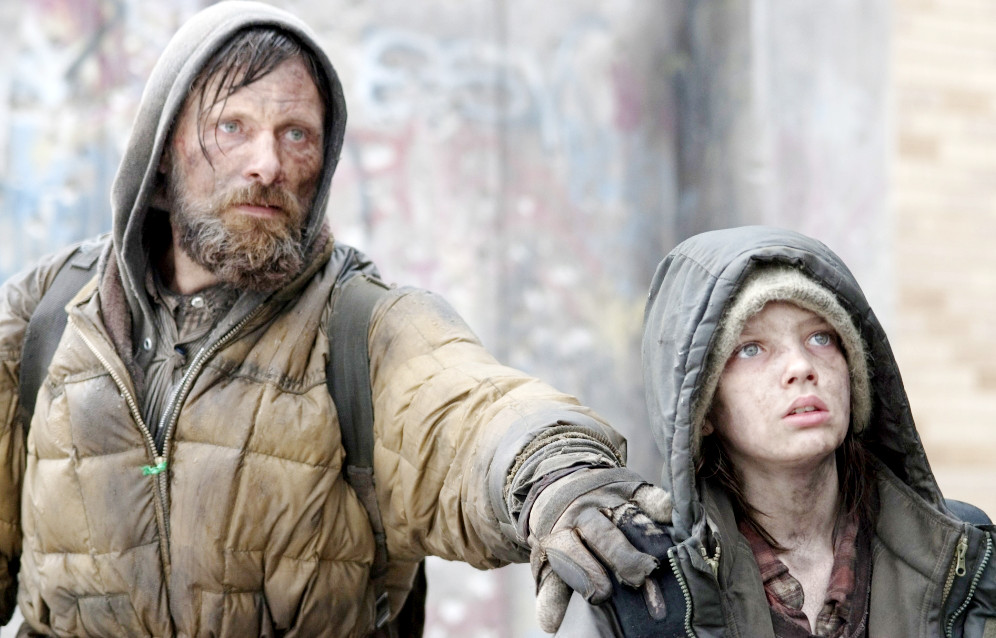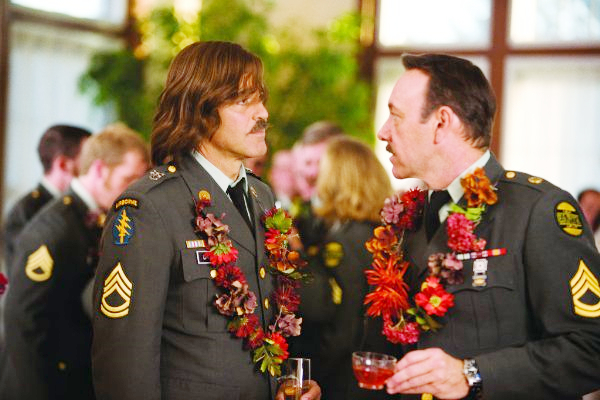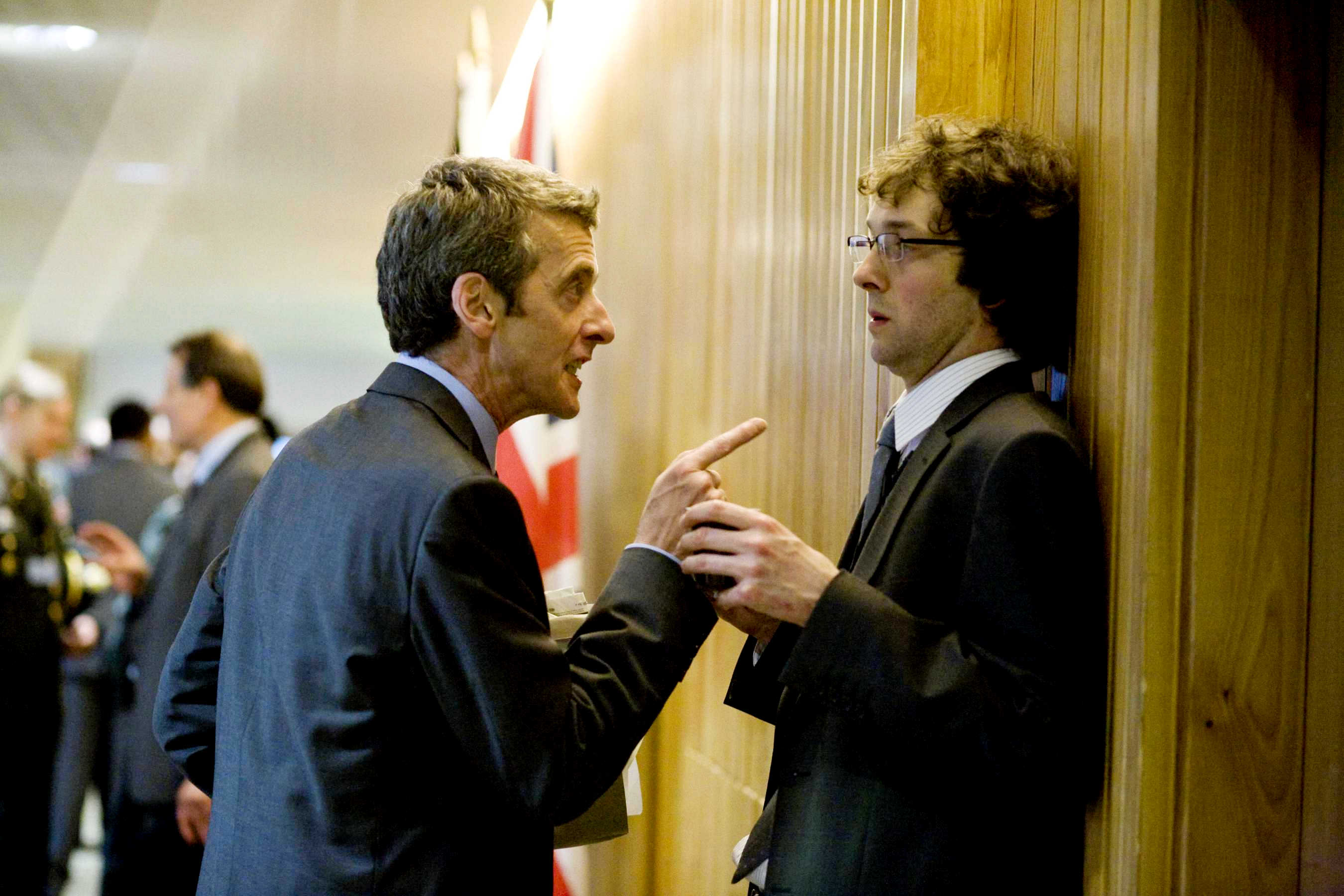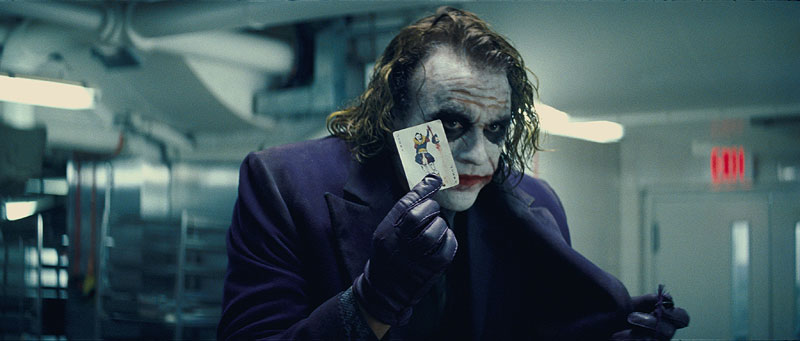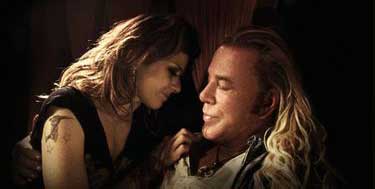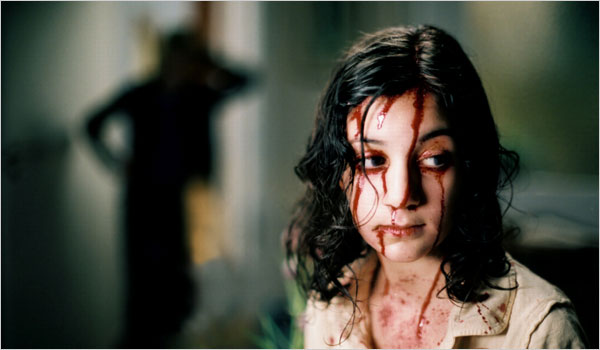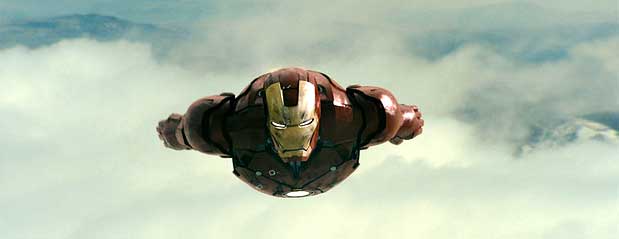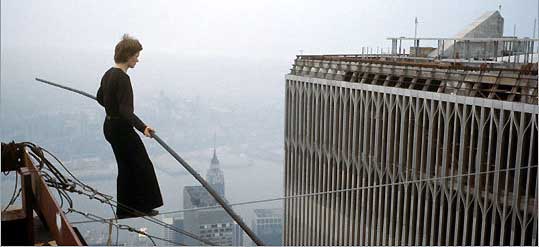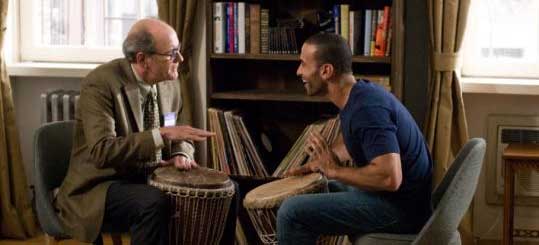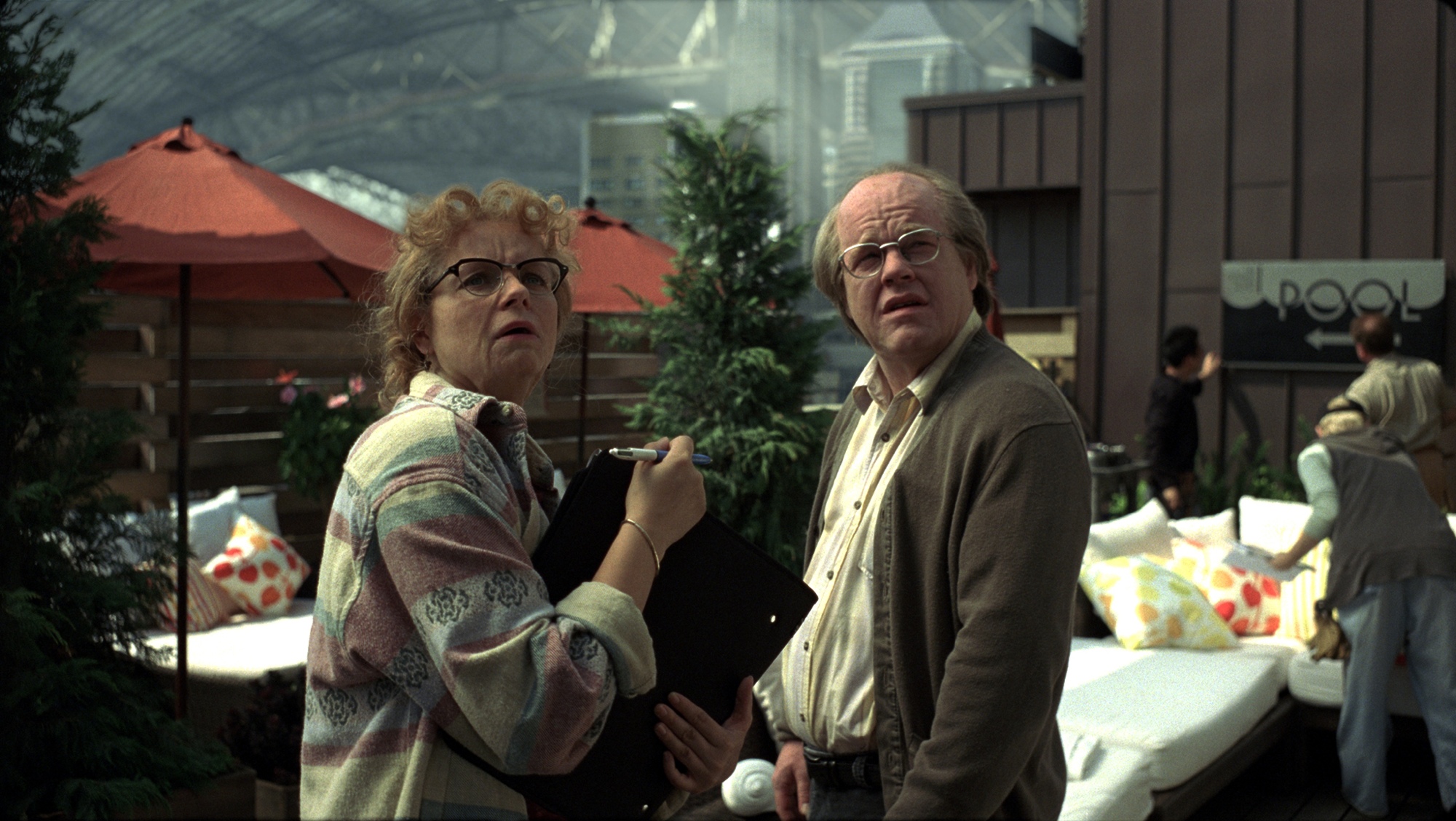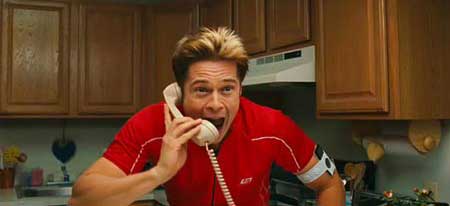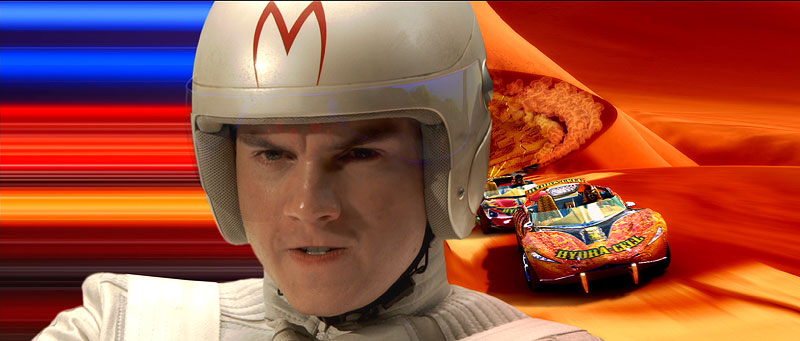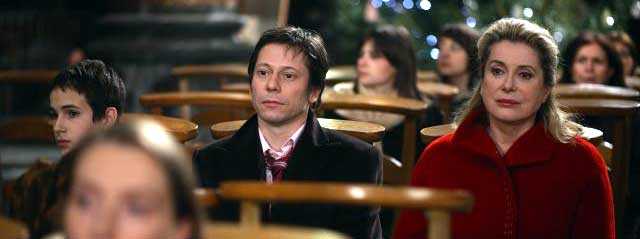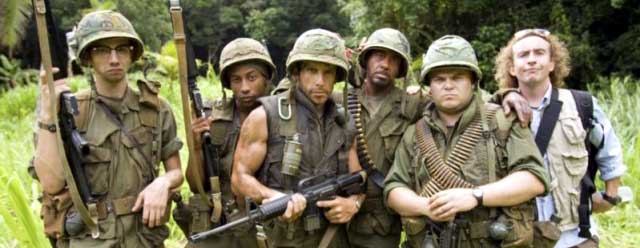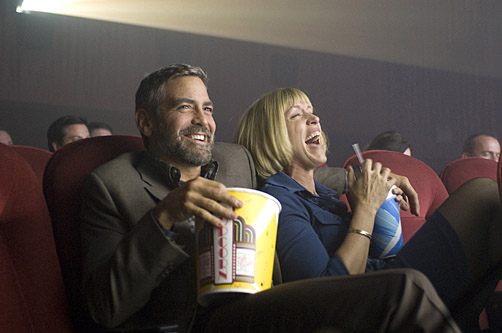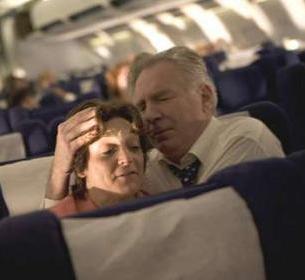We come to it at last, the great battle of our age. In a perfect world, I would’ve gotten these up before 2010 hit. (Then again, in a perfect world, we’d have had a health care bill last July and I’d be going to work by eco-friendly jetpack.) In any case, here they are. No cheating! Please be sure to check out Part 1, Part 2, Part 3, and Part 4, before perusing the…
Part V: 10-1
[The Rest of the List: 100-76 | 75-51 | 50-26 | 25-11 | 10-1]
[2000/2001/2002/2003/2004/2005/2006/2007/2008/2009]

10. The Dark Knight (2008)
|
From the original review: “Holy Catastrophic Wreck of a City, Batman! After two viewings, I’m happy to report Christopher Nolan’s moody, sinister The Dark Knight was well worth the wait, and bears the high expectations set for it quite impressively. In fact, at two and a half hours (which zip along, and even feel somewhat truncated at times — see below), this sprawling Gotham crime saga is almost too much movie to take in the first time around…Most importantly, if Begins, as I said in 2005, was ‘the Batman movie that fans of the Dark Knight have been waiting for,’ this is undoubtedly the Joker movie we’ve all been hoping for as its companion…Heath Ledger here is a true force of nature, embodying to a tee the malevolent, frighteningly insane jester of The Killing Joke and The Dark Knight Returns.“ From the year-end list: “Yes, it’s the obvious fanboy pick. And, admittedly, TDK had pacing problems — it was herky-jerky at times and the third act felt rushed. Still, in a not-particularly-good year for cinema, Christopher Nolan’s operatic reimagining of the Caped Crusader and his arch-nemesis was far and away the most enjoyable experience i had at the movies in 2008. And if Candidate Obama was America’s own white knight (metaphorically speaking) this past year, Heath Ledger’s Joker was its mischievous, amoral, and misanthropic id. If and when the economic wheels continue to come off in 2009, will stoic selflessness or gleeful anarchy be the order of the day? The battle for Gotham continues, and everybody’s nervously eyeing those detonators. Let’s hope the clown doesn’t get the last laugh.“ |
And let’s be honest: The Joker’s had a good year in 2009 (and, at least so far, our “white knight” of 2008 has been looking a little more Two-Faced than some of us anticipated back then.) In a decade that saw more comic book movies than even comic book fans might have asked for, Christopher Nolan’s grim and relentlessly-paced crime noir was the pick of the litter. Yeah, some problems here persist — The movie is a little overstuffed in its third act, and Bale’s bat-rasp doesn’t get any less goofy. Still, even more than Batman Begins, this was a full-immersion Gotham experience.
As per Nolan’s usual m.o., The Dark Knight didn’t shy away from grappling with larger themes amid all its impressive action setpieces. For example, there’s much ado here about the compelling need to maintain convenient myths — be it that Harvey Dent is a saint, or that Rachel will come back to Bruce, or that, as the Joker puts it, when bad things do happen, “it’s all part of the plan.”
Or, to take another example, TDK dwells more substantially than most any other comic films out there on the heavy price of vigilantism. Consider the bad behavior “the Batman” engenders among gun-toting do-gooders in hockey pads. And once Gordon, Dent, and Bats bend one rule — extradition — to get the mob’s moneyman back from Hong Kong, it’s Katy bar the door, basically. Next thing you know, Bats is “burning down the jungle” to get his man, including setting up a warrantless wiretap operation over in the basement at Wayne Enterprises. After all, once you’ve decided to go outside the law — say, to fight crime in a big bat suit — where does it all stop?
Of course, in the end the most memorable aspect of TDK was Heath Ledger’s twisted, anarchic, and thoroughly menacing take on the Clown Prince of Crime. Mark Hamill’s cartoon work notwithstanding, this was the Killing Joke-type Joker I had wanted to see on-screen since before the original Burton Batman. Particularly as compared to Jack Nicholson’s indulgent performance back in the day, Ledger brought us a better class of criminal — I just wish he could’ve stuck around for more.
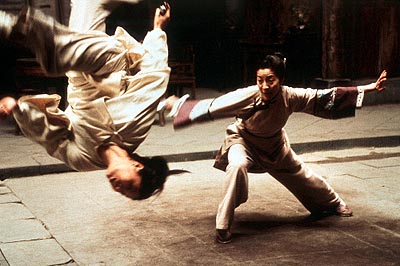
9. Crouching Tiger, Hidden Dragon (2000)
|
From the year-end list: “Amazing film. Nothing bad to say about it. Go now.“ |
I haven’t seen Ang Lee’s Crouching Tiger, Hidden Dragon in many years, so I can’t really vouch for how well its blend of wire-fu enhanced wuxia and ancient Middle Kingdom lore holds up in 2009. (I do know it’s better than Hero, House of Flying Daggers, Fearless, and Curse of the Golden Flower, to take several later examples of the genre.) Still, even coming as it did after The Matrix, also choreographed by Yuen Wo Ping, Crouching Tiger was an absolute jaw-dropper. And unlike Quentin Tarantino in the uneven Kill Bills, Lee wisely let Yuen’s choreography provide the kinetic energy here, rather than opting for frenetic and choppy editing.
Speaking of QT, I’m sure he and countless other kung-fu aficionados out there could plausibly tell you that Crouching Tiger, Hidden Dragon was nothing compared to Snake in the Eagle’s Shadow, Fist of Legend, or any number of other wuxia epics I haven’t seen. Point conceded. Nonetheless, I found Crouching Tiger, Hidden Dragon a breathtaking movie experience. And, with Chow Yun-Fat, Michelle Yeoh, and Zhang Ziyi on hand, I’d put the acting (tho’ not necessarily the martial arts) talent here up against any possible contender.

8. Before Sunset (2004)
As with Wong Kar-Wai’s In the Mood for Love and 2046, I first saw Richard Linklater’s Before Sunrise and Before Sunset back-to-back on DVD a few years ago. And, while Before Sunrise didn’t do much for me (I’m guessing the problem is that I should have seen it back in 1995, when I was a more idealistic 21), I thought Before Sunset was stunningly good. (For this one, I was juuust right.)
Basically told in real-time one Paris afternoon, Before Sunset brings Jesse and Celine, the lovers of the first film, back together ten years after their fateful night in Vienna. As it turns out, one of them didn’t show up for the romantic rendez-vous made at the end of Sunrise, which complicates things from the start. And, with ten years passed, both are now a little older and wiser in the ways of love. And by that, I mean they’ve become damaged, compromised, brittle, and gun-shy around each other.
Nonetheless, they shared something once upon a time in Vienna, and so they spend the next ninety minutes together — getting up-to-date, confessing recent disappointments, licking old wounds. Life didn’t turn out at all like they figured…and why is that, honestly? When and where did everything start to slip, and what might’ve happened if they had followed through on the promise made, and broken, ten years earlier?
In a way, there isn’t much “movie” here at all — It’s just two old lovers, chatting for ninety minutes as they stroll about the City of Light. Still, Before Sunset is a powerful film if you let it work on you. Ethan Hawke and Julie Delpy are both engaging and excellent, and not a false note is struck as each, slowly and almost despite themselves, lets their guard down around the other again. Ok, the great in media res ending of Sunset may veer a bit toward wish-fulfillment mode. But, y’know, why the heck not? After all this time, they still believe. (In fact, the ending to Before Sunset is remarkably like another film coming up…soon.)

7. No Country for Old Men (2007)
|
From the original review: ““Seen the arrow on the doorpost, saying, ‘This land is condemned’…” Well, Bob, East Texas may seem rough, but trust me, West Texas is even worse. I’m always going to have a soft spot for Miller’s Crossing, and The Big Lebowski is its own strange and beautiful beast, but the Coen Brothers’ tense, brooding No Country for Old Men, which I caught this morning, is right up among their best work, and that is no small thing…[I]f you harbored any doubts about the Coens after their botched remake of The Ladykillers, fret not. The brothers are back in form.“ From the year-end list: “[T]he Coens’ expertly-crafted No Country works as both a visceral exercise in dread and a sobering philosophical rumination on mortality and the nature of evil. (And in his chilling portrayal of Anton Chigurh, Javier Bardem has crafted a movie villain for the ages.)…No Country for Old Men seems so seamless and fully formed, so judicious and economical in its storytelling, that it reminds me of Salieri’s line in Amadeus: ‘Displace one note and there would be diminishment, displace one phrase and the structure would fall.’ A dark journey that throbs with a jagged pulse, No Country for Old Men is very close to the best film of the year, and — along with Miller’s Crossing, Fargo, and The Big Lebowski — yet another masterpiece sprung from the Coens’ elegant and twisted hive-mind.“ |
“The crime you see now, it’s hard to even take its measure. It’s not that I’m afraid of it. I always knew you had to be willing to die to even do this job. But, I don’t want to push my chips forward and go out and meet something I don’t understand. A man would have to put his soul at hazard. He’d have to say, ‘O.K., I’ll be part of this world.’” The Coens’ best film in a decade full of superior offerings, No Country for Old Men, as Matt Zoller Seitz eloquently argued in Salon last week, was a culmination of sorts for the brothers.
On its face, No Country is another sordid crime saga like Blood Simple or Fargo. But it’s also, like Fargo, The Man Who Wasn’t There, A Serious Man, and much of the Coens’ oeuvre, a philosophical rumination on what propels people along the paths they choose. When Anton Chigurh flips a coin to decide Carla Jean’s fate, who, really, is doing the deciding? Chigurh or the coin? “The coin don’t have no say. It’s just you.” “Well, I got here the same way the coin did.” Um, ok then. Is it Carla Jean, perhaps? After all, she could’ve picked tails. And, for that matter, Josh Brolin’s Llewelyn could never have taken the money in the first place. In fact, as soon as he does, he starts referring to himself as a dead man…So he knew the score.
But then again, as Tom Reagan asks in Miller’s Crossing, “Do you always know why you do things, Leo?” So maybe it was always out of their hands to begin with. After all, Ulysses Everett McGill’s travels through the South in O’Brother are dictated by the Fates. The Dude…The Dude abides. And Anton Chigurh himself takes a side-impact car crash like he takes anything else — It’s simply the way things are. As another character reminds us in No Country, “You can’t stop what’s comin’.” Or, to switch back to A Serious Man, that whirlwind’s getting closer, and you can’t stop it. So heed the words of the Jefferson Airplane, and find Somebody to Love…
The world of the Coens is all of a piece, and, for all its darkness, No Country is one of its purest expressions. (There’s a good bit of overlap in the world of Cormac McCarthy as well. No Country ends with Tommy Lee Jones talking about a dream he had, one in which his father carries fire into the dark. A father “carrying the fire” also figures very prominently in The Road.) In the Coens’ world, as in ours, the only predictable thing about life is that it is finite, so take things as they come and live it well. As Marge Gunderson puts it in Fargo, “There’s more to life than a little money, you know. Don’tcha know that? And here ya are, and it’s a beautiful day.” Accept with simplicity everything that happens to you. Abide.
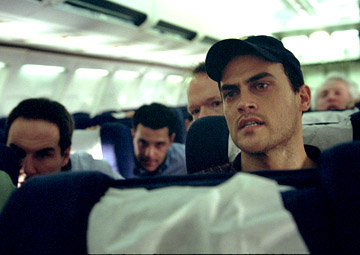
6. United 93 (2006)
|
From the original review: “Whether or not the world really needed a film about the events that took place on United Flight 93 the morning of September 11, 2001 is, I suppose, still an open question…That being said, having run the gauntlet earlier this week, I can now happily report that United 93 is magnificent, and arguably the best possible film that could’ve been made about this story. Both harrowing and humane, it’s the movie of the year so far.“ From the year-end list: “A movie I originally had no interest in seeing, Paul Greengrass’s harrowing docudrama of the fourth flight on September 11 captured the visceral shock of that dark day without once veering into exploitation or sentimentality…While 9/11 films of the future might offer more perspective on the origins and politics of those horrible hours, it’s hard to imagine a more gripping or humane film emerging anytime soon about the day’s immediate events. A tragic triumph, United 93 is an unforgettable piece of filmmaking.“ |
If ever there was a counterpoint to the cosmic shrug favored by Anton Chigurh, it can be found in Paul Greengrass’ harrowing docudrama United 93. Here, as we all know, ordinary Americans refused to simply accept the dismal hand fate dealt them. Inasmuch as they could, the passengers of United 93 turned to face events square on — They rose up, fought back, and, at the cost of their lives, saved the United States Capitol that Tuesday morning in September.
As I said at the time, I wasn’t entirely sure a film should be made about United 93, particularly so soon after the events at hand. But, if a movie was ever going to be made about that flight, let it be this one. With clarity, conviction, and compassion, Paul Greengrass manages first to bring the horror and chaos of the day back to life here, in a way that is as non-exploitative as possible. (Unlike Oliver Stone’s World Trade Center, which pretty much recreates the collapse from the inside, the initial impact on the towers here is shown merely as a blip on a radar screen.) And with the wave of fear and sheer confusion of that day vividly recreated — you can feel it gnawing at your gut at this point — Greengrass then lets the tale of United 93 unfold, so you really understand the dimensions of those passengers’ heroism that day, a heroism borne of survival instinct and a horrible recognition of the stakes involved.
It really is an amazing achievement how well Greengrass threaded the needle here. While being respectful of those lost that day, United 93 works as both art and history. It doesn’t go out of its way to demonize the terrorists or lionize the passengers — he just lets their respective actions that day speak for themselves. (The fateful words “Let’s roll,”, for example, are muttered almost as an aside, and are all the more powerful for it.) In short, what could’ve been a needless and even offensive film in other hands became, under Paul Greengrass, an outright classic.
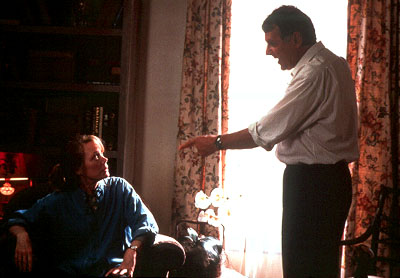
5. In the Bedroom (2001)
|
From the year-end list: “I can’t remember another film this year that resonated so strongly. While I think last year’s award hoopla erred too far toward the histrionics of Sissy Spacek and away from the nuanced performance of Tom Wilkinson, the moral center of the film, In the Bedroom nevertheless powerfully depicts how ostensibly ‘good’ people eventually find themselves contemplating and acting out evil deeds. Plenty of complex and memorable scenes throughout, such as Wilkinson watching the distracted guests at his son’s funeral, or his pained attempt to forge a connection with Marisa Tomei, a woman he has nothing in common with except loss. A very, very good film that, if anyone has the stomach for a double dose of grief, bookends nicely with Atom Egoyan’s The Sweet Hereafter.“ |
Ok, 2006’s Little Children was a bit of a dud. Still, In the Bedroom, based on the Andre Dubus short story “Killings,” was an extremely auspicious debut for writer-director Todd Field, previously best-known for his small role in Kubrick’s Eyes Wide Shut. With a strong sense of place — in this case, a small Maine lobster-town, probably not too far down the road from various Stephen King short stories — In the Bedroom is a powerful and morally complex study of how “good” people are, through rage, grief, and slowly curdling despair, eventually driven to dark deeds.
As I said above, Bedroom is a movie that resonates strongly in the details — say, Tom Wilkinson eyeing his son’s girlfriend (Marisa Tomei) with a combination of atta-boy pride and vague jealousy, or the nervous silence that descends around Wilkinson’s usual poker table after his son’s murder, or the way Wilkinson and Spacek tend to bury their grief — and their eventual plot — under mounds of everyday routine. More than most movies I can think of, In the Bedroom felt like a literary experience, one crafted by a filmmaker with a discerning, novelistic eye. So if any director can salvage something out of Cormac McCarthy’s heavy-handed Old West Grand Guignol, Blood Meridian, it might well be Field — It’s slated for release in 2011.
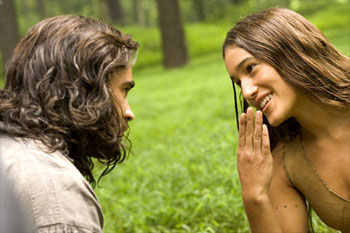
4. The New World (2005)
|
From the original review: “[A] masterfully crafted tale of discovery and transformation, passion and misunderstanding, intimacy and heartbreak, love and loss, and worlds Old and New. In short, it’s the best film of 2005.“ From the year-end list: “A movie which seemed to divide audiences strongly, Terence Malick’s The New World was, to my mind, a masterpiece. I found it transporting in ways films seldom are these days, and Jamestown a much richer canvas for Malick’s unique gifts than, say, Guadalcanal. As the director’s best reimagining yet of the fall of Eden, The New World marvelously captured the stark beauty and sublime strangeness of two worlds — be they empires, enemies, or lovers — colliding, before any middle ground can be established. For its languid images of Virginia woodlands as much as moments like Wes Studi awestruck by the rigid dominion over nature inherent in English gardens, The New World goes down as a much-overlooked cinematic marvel.“ |
The best way to sum up Terrence Malick’s achievement with The New World is to go back to the Gatsby quote I used in the original review: “For a transitory enchanted moment man must have held his breath in the presence of this continent, compelled into an aesthetic contemplation he neither understood nor desired, face to face for the last time in history with something commensurate to his capacity for wonder.“
That’s the extraordinary sensation at the center of Malick’s film. I’m still not quite sure how he pulled it off, but The New World feels like arriving on the threshold of some strange, danger-ridden, and wondrous alien planet called…America. (Put another way, before Pandora, there was Jamestown.) The New World is a First Contact story that somehow manages to maintain the momentous portent of this historic moment, when Old and New Worlds collided. And, perhaps as impressively, it does it without taking sides. Half the time we’re as inclined to side with Pocahontas and the sensible Powhatans, who, unlike the new, scurvy-ridden English arrivals, have the sense to prepare for winter (or at least to stop panning for non-existent gold when the frost sets in.) More than The Thin Red Line, more than Badlands, more even than Days of Heaven, I would say this is Malick’s magnum opus.

3. I’m Not There (2007)
|
From the original review: “[T]o be honest, it’s hard to imagine how this film plays to people who aren’t all that into Dylan…But, if you do have any fondness for Bob, oh my. The short review is: I loved it. Exploding the conventional music biopic into shimmering, impressionistic fragments, Todd Haynes has captured lightning in a bottle here. The movie is clearly a labor of love by and for Dylan fans, riddled with in-jokes, winks, and nods, and I found it thoughtful, funny, touching, and wonderful. Put simply…I’m Not There is my favorite film of the year. I can’t wait to see it again.“ From the year-end list: “Admittedly, it was a wonderful confluence of my interests. Nevertheless, Todd Haynes’ postmodern celebration of Bob Dylan, brimming over with wit and vitality and as stirring, resonant, and universal as a well-picked G-C-D-Em progression, was far and away my favorite film experience of the year. It seems to have slipped in a lot of critics’ end-of-year lists…but so be it — You shouldn’t let other people get their kicks for you anyway. A heartfelt, multi-layered, six-sided puzzle about the many faces and voices of Dylan, l found I’m Not There both pleasingly cerebral and emotionally direct, and it’s a film I look forward to returning to in the years to come. Everyone knows he’s not a folk-singer.“ |
“I was riding on the Mayflower when I thought I spot some land…” Speaking of the New World, welcome to Bob Dylan’s Old, Weird America, here brought to life as the Halloweentown-like hamlet of Riddle, where Richard Gere hides out as the sixth and oldest Bob among us. Hiding, as always, right there in plain sight.
So, in retrospect, Todd Haynes’ ode to the many facets of Bob Dylan probably turned out to be more inside baseball-ish than I originally assumed. I’ve since watched the movie with various folks who couldn’t care less about the man, and they just found the whole enterprise weird, inscrutable, and mostly uninvolving. And, hey, if you’re not feeling it, you’re not feeling it. Still, for those of us who’ve imbibed the Dylan Kool-Aid (See also: J. Hoberman)…wow. Haynes’ movie is a lovely gift, and way more intriguing than any standard-issue biopic I can imagine.
Basically, I adore this film. Each fragment of Bob here feels perfectly cast — Marcus Carl Franklin as the impossibly talented wunderkind…and fake, Christian Bale as the take-no-prisoners true-believer with his finger-pointin’ songs, Heath Ledger as the womanizing romantic and survivor of Blood on the Tracks, Ben Whishaw as the know-it-all, Rimbaudian interviewee, Richard Gere as the John Wesley Harding, Old Weird America Bob, and, of course, Cate Blanchett as the electric Blonde on Blonde non-blonde. Not to mention Charlotte Gainsbourg as Suze/Sara, Bruce Greenwood as Mr. Jones, Julianne Moore’s riff on Joan Baez….it’s an embarrassment of riches here.
To me, I’m Not There is a fascinating, inspiring movie, one as much about Dylan’s primordial American landscape as it is about the man from Hibbing, Minnesota. In defiance of the usual staid biopic routine, Haynes managed to create an ambitious, open-ended film that does justice to both a notoriously mercurial artist and his impressive body of work, one that deserves its place on the shelf right next to Dylan’s music. So, yeah, I’m Not There may be preaching to the converted here somewhat. But as a member of the choir, I say press on, brother Haynes, press on.
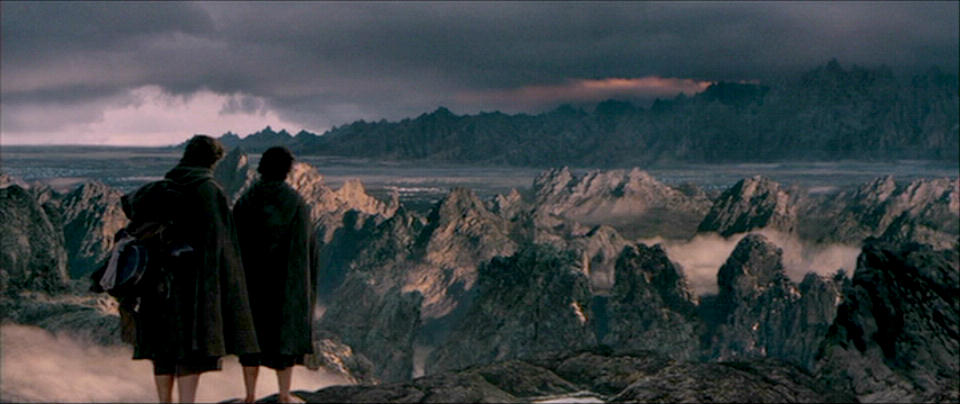
2. The Lord of the Rings (2001-2003)
|
From the original review (FotR): “Post-Film Update: They did it! They pulled it off!“ From the extended edition review (FotR): “The Galadriel/Lothlorien stuff works much better now, with both Galadriel and Celeborn taking on the flavor of Tolkien’s tome. Moreover, all of the underutilized members of the Fellowship – Boromir, Gimli, Merry, Pippen, and even Samwise – are given more characterization. And it just seems to take longer to get from place to place, which might take away from the film’s dizzying pace, but definitely captures more of the feel of the book.“ From the year-end list (FotR): “ Suffice to say, it was everything I had hoped for and more. NOT for fanboys and fangirls alone – In fact, given its epic breadth and cinematographic sweep, I’d put it up as a worthy successor to the works of David Lean. Mr. Lucas, the bar has been raised.“ From the original review (TTT): “After two showings yesterday, I must say I’m delighted and (still) surprised at how wondrous this second chapter turned out…[O]verall a deliciously good second installment in the Tolkien trilogy. And, with the ends of both the Isengard and Cirith Ungol storylines to be packed in with all the multitudinous events of ROTK, I see no way the next one can clock in under 210 minutes. Should be grand!“ From the extended edition review (TTT): “All in all, as with Fellowship, the extended Two Towers DVD includes a better, richer film loaded with tons of fascinating extras. If you’re a fan, I’m sure you’re getting it anyway…but if you’re a casual Rings admirer, the TTT:EE is just as worth picking up as the FOTR:EE.“ From the year-end list (TTT): “No surprise here. Although Fellowship may have delivered a bigger emotional impact, Peter Jackson and co. handled massive expectations with aplomb and deftly translated J.R.R. Tolkien’s most unwieldy tome (Silmarillion notwithstanding) into the action-epic of the year.“ From the original review (RotK): “Return of the King is an amazing conclusion to a trilogy that’s surpassed all expectations and, I say this without hyperbole, redefined the medium — From the technical breakthrough of Gollum to the seamless intertwining of jaw-dropping FX and character-driven emotion throughout, these films have expanded our vision of the possible and set a new standard for epic filmmaking.“ From the extended edition review (RotK): “As with the FotR:EE and the TTT:EE, the Extended Edition is clearly a better film than the theatrical cut, with richer, denser characterizations, more Tolkien lore, and an improved sense of flow…All in all, RotK:EE, like its predecessors, is a wonderful gift to the fans of Tolkien and Middle Earth. And, although we have come now to the end, these three DVD sets (which look great on the shelf together) will now live on forever as a beacon of hope to fandom.“ From the year-end list (RotK): “If you didn’t see this pick coming, welcome to GitM…Even in spite of the pacing problems mandated by the TE running time, Return of the King is a marvel, the perfect ending to this epic for the ages and easily the best third-movie in a series ever. There’s so many ways these films could’ve turned out atrociously…The fact that they didn’t — that they instead shattered all expectations while staying true to Tolkien’s vision — is a miracle of inestimable value. In the post-Star Wars age, when epics have been replaced by ‘blockbusters,’ and most event movies have been hollowed-out in advance by irony, excessive hype, dumbing-down, and sheer avarice, Peter Jackson has taught us to expect more from the cinema once again. Beyond all imagining, he took the ring all the way to Mordor and destroyed that sucker. So have fun on Kong, PJ, you’ve earned it.“ |
“Three Rings for the Elven-kings under the sky. Seven for the Dwarf-lords in their halls of stone. Nine for Mortal Men doomed to die. One for the Dark Lord on his dark throne, In the Land of Mordor where the Shadows lie. One Ring to rule them all, One Ring to find them, One Ring to bring them all and in the darkness bind them, In the Land of Mordor where the Shadows lie.“
If you get any goosebumps while listening to J.R.R. Tolkien read the last paragraph, then, you were probably like me at the start of this decade: looking for any news you could find about the forthcoming (live-action) movie version of The Lord of the Rings trilogy, directed by Peter Jackson of Heavenly Creatures, The Frighteners, and Bad Taste. On January 12, 2001, you probably also filed into the earliest possible performance of New Line’s (very quality) Thirteen Days to catch the highly anticipated trilogy trailer.
And when December 19, 2001 at long last rolled around, you may too have buried your Phantom Menace butterflies deep down inside, took up what fanboy or fangirl standards you possessed (I myself wore the One Ring…on a chain, of course), and filed in to Fellowship to see what Jackson had come up with. At which point we — you and I both — were confronted with…blackness.
“I amar prestar aen, han mathon ne nen…The world is changed. I feel it in the water. I feel it in the earth. I smell it in the air. Much that once was is lost, for none now live who remember it.” And just about right then and there, it was clear: Holy Sh*t! They did it!
Yes, there would be gigantic battles soon thereafter, massive CGI-enhanced affairs to rival the most vivid fever dreams of Led Zeppelin. And, of course, there would be elves, dwarves, and right twee little ‘obbits. But the decision by Jackson, Fran Walsh, and Philippa Boyens to start their grand adventure with that sharp, Tolkienesque twinge of melancholy indicated right away that they had not been turned by the Nazgul of Hollywood, nor by the power of the effects at their disposal. Rather, they had stayed true to the sad and cautionary spirit of Tolkien’s tale.
Do I have quibbles about Peter Jackson’s Lord of the Rings? Of course. Fellowship of the Ring is just about perfect to me, with the small-but-notable exceptions of Weathertop and the Ford at Bruinen. (Aragorn just should not be able to take out five Nazgul like that. And — weirdly, given his horror background — PJ somehow missed the real darkness of Frodo’s turning after his Morgul wound: A growing part of him wants to go with the Riders. “Come back, come back…to Mordor we will take you.“)
And, as the story moves forward into The Two Towers and Return of the King, more minor problems emerge. (The “Choices of Master Samwise,” Denethor’s lack-of-palantir and the too-bright-by-half Shelob’s lair, for example.) Plus, however anti-climactic and un-filmic, a strong argument can be made that the excised Scouring of the Shire — nobody wins a war, the thing you fought for is destroyed by the fighting for it — is half the point of Tolkien’s tale…although I can see why it got left out.
But those quibbles aside, The Lord of the Rings was so much better than any of us really had any right to expect. In fact, the trilogy has so many secret weapons that it’s hard to enumerate them all. There’s the variegated natural beauty of New Zealand standing in for Middle Earth, as photographed by cinematographer Andrew Lesnie. (I would argue that the most powerful moments in the Fellowship prologue are those accompanied by simple nature shots: “Darkness crept back into the forests of the world. Rumor grew of a Shadow in the East, whispers of a nameless fear…“)
There’s Ian McKellen’s turn as Gandalf, a performance that’s almost impossible to imagine anyone else pulling off as well. There’s the hauntingly beautiful music of Howard Shore, who was operating on another plane in these films. There was the art direction help by John Howe and Alan Lee — two artists who had spent their lives dreaming up Middle Earth. With PJ, RIchard Taylor, and the enterprising elves of WETA, they helped bring Tolkien’s words to life as never before. And, speaking of WETA, they and Andy Serkis brought us Gollum, a CGI-creation like none we had ever witnessed.
Ultimately, Lord of the Rings is the story of creatures, living long after the calamitous events that shaped their age, that now must face the End of their World. And, more than the calamity itself, the real story is about the characters’ various responses to this time of testing. PJ et al got this. More than most films of its ambition, its crafters understood that emotional scale was as important as visual grandeur — that, at its heart, the trilogy isn’t so much about wizards and warriors as it is about friendship, the nature of evil, and persevering in dark times. And because they got that right, The Lord of the Rings is an epic unmatched in fantasy cinema before or since.
A final footnote: While the tone and thematic weight of the story is quite different, one hopes the old gang — with their new Hobbit friend, Guillermo del Toro — can bring about similar magic when they tackle “the incident with the dragon” in short order. The road goes ever on…next stop, December 2011.
Speaking of which, here we are at the Crack of Doom at long last. So, to number 1 and the end of this Oughty Age…
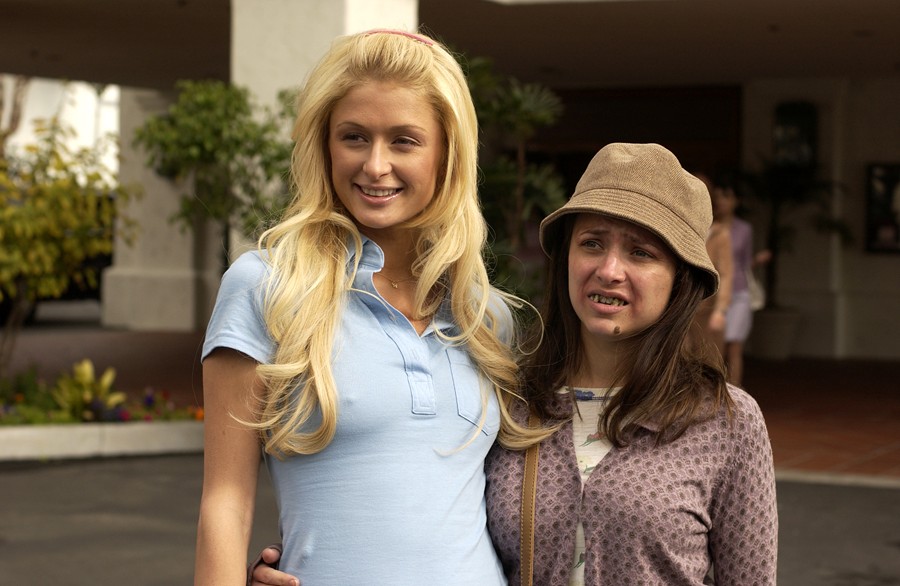
1. The Hottie and the Nottie (2008)
A surprising heartwarming tale about body image and the perils of celebrity, The Hottie and the Nottie is…pretty obviously not on this list. To be honest, I never saw it. But I feel totally ok about presuming that it was an abomination in the eyes of the cinema Gods. Sorry, just seeing if anyone made it down this far. Ahem. #1 is in fact…
It’s coming…
It is…
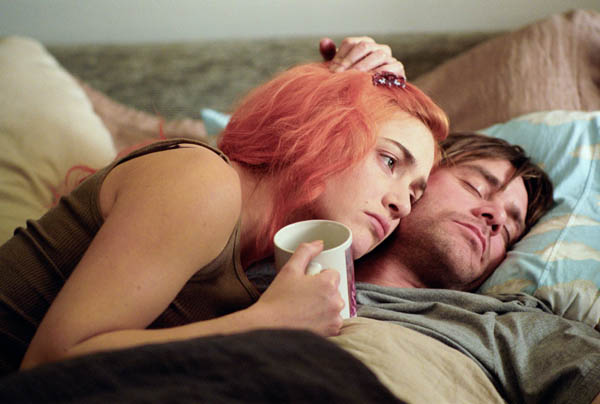
1. Eternal Sunshine of the Spotless Mind (2004)
|
From the original review: “I thought Michel Gondry’s Eternal Sunshine of the Spotless Mind lived up to the hype and then some. One part Annie Hall, one part Sliding Doors, three parts Charlie Kaufman, Eternal Sunshine is an exceptionally strange take on the romantic comedy…(It probably helped that I tend to be a fan of almost all the folks at work here…Jim Carrey, Kate Winslet, Tom Wilkinson, Mark Ruffalo, Elijah “Bad Frodo” Wood, and David Cross…Sunshine is a fun, thought-provoking look at relationships and memory.“ From the year-end list: “The one true classic of 2004, Eternal Sunshine has only grown in my estimation since its initial release in March. (David Edelstein’s take on it as one of Harvard philosopher Stanley Cavell‘s remarriage comedies is well worth reading.) A heartfelt examination of love, loss, and memory, Eternal Sunshine was also a strikingly adult take on romance and relationships…With great performances from a caged Jim Carrey and an electric Kate Winslet, the film managed to be both an earnest, passionate love story and a wistful paean to those person-shaped holes we all carry in our hearts and memories…(Why even bother? We need the eggs.)“ |
“Happy is the blameless vestal’s lot, the world forgetting by the world forgot. Eternal sunshine of the spotless mind! Each pray’r accepted, and each wish resign’d.” That poem by “Pope Alexander” is the epigram of, in my humble opinion, the best movie of the decade. I first saw Eternal Sunshine, Michel Gondry and Charlie Kaufman’s second collaboration after 2001’s smart but very uneven Human Nature, in the stress-case period just before my orals exams, so I didn’t give the film the review it deserved. (Although I tried to rectify that oversight some with 2004’s end-of-year list.) Suffice to say, Eternal Sunshine is a masterpiece — beautiful, heartfelt, incisive, and humane.
Like the best science fiction, Eternal Sunshine uses a sci-fi premise — a friendly neighborhood clinic that can erase bad relationships for you — to capture something elusive about our human condition, in this case about memory, love, and regret. Is it better to have loved and lost, or never to have loved at all? While various techs (Mark Ruffalo, Elijah Wood, Kirsten Dunst, Tom Wilkinson) handle the details of the medical procedure at hand (and conduct their own affairs of the heart), that’s the question Jim Carrey’s Joel wrestles with as he remembers — one final time before the lights go off — his days and nights with Kate Winslet’s Clementine.
I’ll concede that certain dream-elements of Eternal Sunshine don’t quite work — the baby-Joel under the table and in-the-sink stuff, for example. And you could argue, and some do, that all of the techie shenanigans outside Joel’s mind are superfluous, although I enjoy them all the same (and, of course, they set up the final payoff involving the leaked tapes.) In fact, I tend to like the film’s ragged, organic, and hand-crafted feel all around.
Still, the movie’s real strength is its acute inquiry into the Ballad of Joel and Clementine (not to mention Joel-and-Clem, as a unit, and Joel’s in-head Clem to boot.) And this is where Eternal Sunshine is dead-on and so often devastating. Note the perfectly-selected bric-a-brac stuff — all the random, built-up detritus of a life together — that Joel must collect and hide away forever to get his mind wiped. Or his gloomy gus, self-lacerating inner monologue when he first meets Clem on the Montauk train. Consider the moments that signify the end is near — such as the usual jokes getting old, or that grisly conversation in the Chinese restaurant. And consider too the details Joel remembers and cherishes, like their trip to the frozen Charles, or that night they saw the elephants, or kissing under the sheets, or just Clem resting her cheek on his, one bright and lazy winter morning.
Given that the bottom eventually drops out, was it all worth it, in the end? Both Joel and Clementine have to answer that question with open eyes as Eternal Sunshine comes to a close. And this is where people tend to either find the movie dark and gloomy or legitimately romantic, in a way few movies are. I go the latter route — Joel and Clem know what’s 99.44% likely to happen this time: The same thing that happened last time. “I don’t see anything I don’t like about you.” “But you will! But you will, and I’ll get bored with you and feel trapped, because that’s what happens with me.“
And, yet, they take the plunge anyway, partly because the good times were good. Partly because love in the real world is never a meet-cute ’til the happily-ever-after anyway. It’s negotiation, conversation, laughter, and crumbling defenses, a give-and-take process of two people slowly falling together. And partly because maybe, just maybe, the bad times were not inevitable, and things will break a different way this time. Screw Anton Chigurh –There’s no fate but we make.
In all too many ways, from 9-11 to the Great Recession, the Oughts were ten years to forget. (And, on a personal level, it’s safe to say I spent much of the past decade glum about one break-up or another.) But would we be better off forgetting the Oughts completely? Surely, there were flecks of gold throughout these past ten years, however dismal and Dubyaesque the decade often turned out to be. Regardless of how things pan out at the macro level, whether for good or ill, there are always small moments to cherish, days to remember fondly, and films to treasure. In fact, I’ve put one hundred of my own here. And of those, for me, Eternal Sunshine of the Spotless Mind shone the brightest.
So, we finally made it. That’s the end of the list, folks, hope y’all enjoyed it. Fare thee well, gone away, there’s nothing left to say.
Hey, wait a sec, that reminds me…
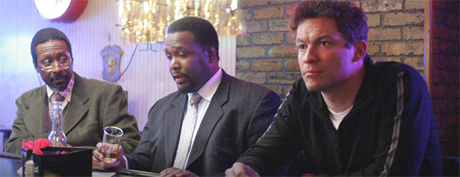
Special Award. The Wire (2002-2008)
|
From the series-finale review: “Pour a glass of Jamesons and give the devil (way down in the hole) his due: The Wire, a television show with a better claim than most to the title of “Best Ever” (and definitely the best show ever made about American politics), ends this evening…And you know the only thing better than having enjoyed all 60 hours of the show? Having never seen it at all. If that’s you, pick up Season 1 and start from the beginning — you’re in for a real treat.“ |
I’m not about to do a Best of the Decade TV retrospective here at GitM, partly because I don’t feel like I watch enough TV to really judge. (Although, looking at other lists, it seems I caught a lot of the good stuff: Deadwood, Arrested Development, Six Feet Under, Mad Men, Breaking Bad, Battlestar Galactica, Curb Your Enthusiasm, The Sopranos, etc.) Besides, after this ridiculously extended movie project, I’ll be damned if I feel like going to the pop-culture-nostalgia well again just yet. Still, call it a 60-hour-movie if it helps square the circle, but The Wire must get its props.
With a journalist’s eye for detail and the gallows humor of good homicide po-lice, David Simon, Ed Burns, & co. used the rhythms of a cop show to hook us on an in-depth, comprehensive, and scathing diagnosis of life in the 21st century American body politic, as represented here by the failing city-state of Baltimore. Here, the Institutions are the new Gods, and people get crushed whenever they try to flout their dictates. In fact, people are worth less and less every day — Because, wherever you are in the game, there’s always someone else younger, hungrier, and/or less principled gunning for your spot.
That may sound heavy and edutainmentish, but it wasn’t. Week after week, The Wire was also the funniest hour-long on television. It built, slowly, gradually, inexorably — By the end of Season 1, I liked the show quite a bit but thought Deadwood probably edged it out in terms of quality. By the end of Season 3, I thought it was far and away the best show on television and was awestruck by its ambition. And we still had two more seasons to go.
David Simon and the gang eventually got so sick of being called “Dickensian” all the time that they turned it into a joke in Season 5: The Baltimore Sun is only interested in “the Dickensian aspect” of the streets, meaning simple, manageable problems that could be solved if, as per many Dickens tomes, only some highly convenient and thoroughly implausible Benefactor came out of nowhere to take the trouble.
Heh, point conceded. Still, as many others have noted, the term applies regardless. Just as Dickens brought industrial corruption and the plight of Victorian London’s social underclass to life at the close of the 19th century, The Wire is the piece of journalistic fiction generations one or two hundred years hence will look to to understand the urban landscape of the Oughts. And more likely than not, then as it is now, the game will still be the game. Always.
No-Frills Version
100. Dave Chappelle’s Block Party.
99. SW: Revenge of the Sith.
98. Unbreakable.
97. Borat.
96. The Quiet American.
95. The Savages.
94. About a Boy.
93. The Matrix: Reloaded.
92. L’Auberge Espagnole.
91. King Kong.
90. Capote.
89. Star Trek.
88. Inside Man.
87. Munich.
86. Meet the Parents.
85. Sin City.
84. Bloody Sunday.
83. The Squid and thr Whale.
82. Primer.
81. American Psycho.
80. Brokeback Mountain.
79. Drag Me to Hell.
78. Michael Clayton.
77. The Fountain.
76. The Fog of War.
75. The Queen.
74. Anchorman: The Legend of Ron Burgundy.
73. U2 3D.
72. Ocean’s 12.
71. In the Valley of Elah.
70. Boiler Room.
69. Jackass.
68. Secretary.
67. (500) Days of Summer.
66. Lord of War.
65 Bamboozled.
64. Master & Commander.
63. Mystic River.
62. HP IV: Goblet of Fire.
61. Iron Man.
60. Batman Begins.
59. Good Night, and Good Luck.
58. District 9.
57. Wonder Boys.
56. The Man Who Wasn’t There.
55. The Descent.
54. Ballets Russes.
53. Battle Royale/Infernal Affairs.
52. Zodiac.
51. 28 Weeks Later.
50. The Proposition.
49. The Bourne Trilogy.
48. The Prestige.
47. WALL-E.
46. The Royal Tenenbaums.
45. 24 Hour Party People/Control.
44. Coraline.
43. O Brother Where Art Thou?
42. Shaun of the Dead.
41. The Pianist.
40. Knocked Up.
39. Sideways.
38. Let the Right One In.
37. Intolerable Cruelty.
36. X-Men 2/Spiderman 2.
35. The Wrestler.
34. The Hurt Locker.
33. A Serious Man.
32. The Cooler.
31. Moon.
30. Requiem for a Dream.
29. Sexy Beast.
28. Milk.
27. Layer Cake.
26. Garden State.
25. Donnie Darko.
24. High Fidelity.
23. In the Mood for Love/2046.
22. The 25th Hour.
21. Mulholland Drive.
20. The Diving Bell & the Butterfly.
19. The Incredibles.
18. Memento.
17. In the Loop.
16. Traffic.
15. Lost in Translation.
14. Syriana.
13. Children of Men.
12. Letters from Iwo Jima.
11. The Lives of Others.
10. The Dark Knight.
9. Crouching Tiger, Hidden Dragon.
8. Before Sunset.
7. No Country for Old Men.
6. United 93.
5. In the Bedroom.
4. The New World.
3. I’m Not There.
2. Lord of the Rings.
1. Eternal Sunshine of the Spotless Mind.
Special Award. The Wire.


